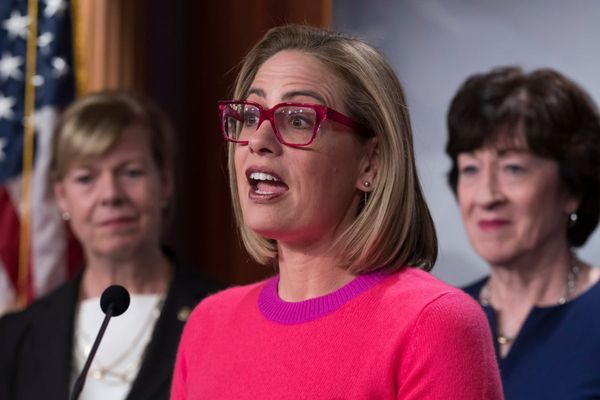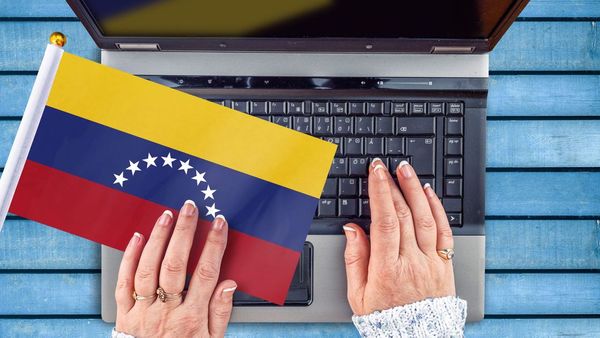
Six weeks ago the Coalition and the Greens teamed up to punt Labor’s controversial deportation bill to a Senate inquiry.
It was a sign of the Albanese government’s vulnerability on the immigration detention issue since the NZYQ high court decision that the opposition felt it had more to gain by keeping the issue running than helping to pass tough new laws.
For the Greens, it was a chance to kill a bill they hated. It contains mandatory minimum sentences of one year in prison for a non-citizen refusing to cooperate with their deportation, as well as ministerial powers to blacklist whole countries from new visa applications.
The mandatory minimums – which Labor for Refugees notes breach Labor’s national platform – have already been bucketed by the Senate’s scrutiny of bills committee and parliament’s human rights committee. Between them, these committees have seven Labor members.
But given that the bill has already passed Labor’s caucus and the House of Representatives, it seems too late for backbench misgivings to overturn the sweeping new powers proposed for the immigration minister, Andrew Giles. It would take the Coalition and the Greens teaming up again to do that.
On Tuesday we will find out what the legal and constitutional affairs committee’s inquiry concluded about the bill.
Going into the inquiry, the Coalition warned of “unintended consequences” that blacklisting countries who refuse to take involuntary removals (Iran, Iraq, South Sudan and Russia) could result in their citizens risking the journey to Australia by boat instead.
The committee’s deputy chair, the Liberal senator Paul Scarr, told Guardian Australia his report would consider adding “checks and balances” to deal with those unintended consequences.
Questions from the shadow home affairs minister, James Paterson, at the 15 April hearing indicate the likely direction of travel. He asked for ways the blacklisting power could be “appropriately oversighted or limited” such as a “sunset clause” on ministerial decisions to blacklist – and that the decisions could be disallowable by parliament.
A senior lawyer at the Australian Human Rights Commission noted that equivalent provisions in the US and the UK give greater guidance about the factors the decision-maker must consider, which is one likely amendment.
The opposition will probably call for an expansion of the existing exemption to the blacklist for visa applications from family members. Witnesses had argued the exemption misses parents with children who may not be dependent, grandparents, siblings and close family friends.
Scarr says the “extensive submissions” from stakeholders and concern in diaspora communities “justify” the Senate’s approach not to be rushed and instead subject the bill to greater scrutiny.
While the Coalition looks at smaller nips and tucks, the Greens are preparing a slate of amendments as a Plan B.
The human rights committee had a host of suggestions: remove mandatory minimums; remove the limits on what a “reasonable excuse” is for refusing to comply with deportation; remove the power to add further visa classes to those in the bill’s line of fire.
Guardian Australia understands the Labor senators’ contribution to Tuesday’s report will reference these concerns without explicitly calling for amendments.
Whatever improvements the Coalition offers in its report, it will not lock itself in to vote against the bill if they are not enacted. The shadow cabinet is yet to decide a final position and there are differences of opinion internally.
The Greens think the Coalition should block the bill to avoid giving Labor a win.
The Coalition says the government is obliged to put the bill to a Senate vote in budget week – after huffing and puffing about the government’s push for urgency in late March.
Labor says the Coalition is trolling Labor and trawling for multicultural votes; that Peter Dutton’s opposition must be responsible and offer bipartisanship.
You can already see how the Coalition blocking the bill would be deployed as a crutch by Labor.
Labor is on the defensive because a delegate of Giles took the ankle bracelet off a former immigration detainee later accused of burglary and assault, and prosecutors failed to oppose his bail when he was charged with visa breaches. On Friday Anthony Albanese criticised those decisions then countered that Labor wanted “to take as strong an action as possible” but had not been allowed by “a coalition of the Liberals, [Nationals] and Greens”.
If it loses the ASF17 high court challenge on whether detainees who refuse to cooperate with deportation need to be released from immigration detention, Labor could use Coalition obstruction to counterattack.
None of that would make being tough on borders and deportation a vote winner for Labor. But it would give the government a way to share the blame.
The Coalition now has a delicate balancing act: blow up the deportation bill to further sabotage Labor in budget week but risk making itself the issue. Or bitch and fold now that it has found a few improvements to justify its delay.







